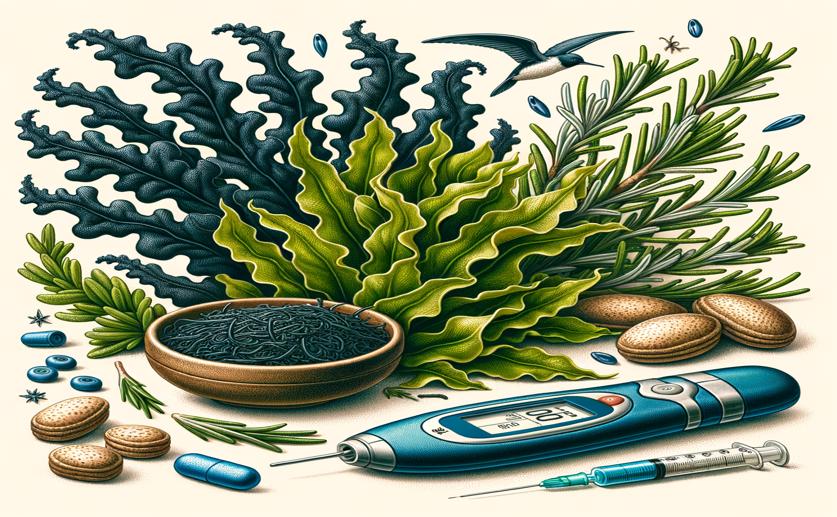
Health Benefits of Seaweed and Rosemary Extracts in Diabetes
Jenn Hoskins
19th May, 2024

Image Source: Natural Science News, 2024
Key Findings
- The study from the Medical University of Bialystok explored the effects of rosemary and brown algae extracts on diabetic rats
- Both extracts helped counteract diabetes-induced metabolic disturbances, with brown algae showing a stronger effect
- The findings suggest that these natural extracts could help manage diabetes-related metabolic issues and reduce complications
References
Main Study
1) Metabolic profiling reveals the nutraceutical effect of Gongolaria abies-marina and Rosmarinus officinalis extracts in a type 1 diabetes animal model.
Published 17th May, 2024
https://doi.org/10.1016/j.biopha.2024.116731
Related Studies
2) Evaluation of Oxidative Stress Biomarkers, Pro-Inflammatory Cytokines, and Histological Changes in Experimental Hypertension, Dyslipidemia, and Type 1 Diabetes Mellitus.
3) Parameters of oxidative stress, DNA damage and DNA repair in type 1 and type 2 diabetes mellitus.



 17th May, 2024 | Greg Howard
17th May, 2024 | Greg Howard